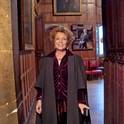Article
Separate and Unequal : Judicial Culture, Employment Qualifications and Muslim Headscarf Debates
Laws
(2013)
Abstract
Few European lawmakers have analyzed the implications of Muslim headscarf bans for equal employment opportunity. EU anti-discrimination directives suggest that contradictory member-state approaches will eventually invoke a judicial Community response at national expense. Drawing on the bona fide occupational qualification (BFOQ) standard, this study compares the “judicial cultures” of the U.S. Supreme Court, the German Constitutional Court, the European Court of Human Rights (ECHR) and the European Court of Justice (ECJ). It argues that while the ECJ initially invoked Roman law precepts shared by a majority of its member-states through the 1980s, it has come to embrace Anglo-American norms stressing individual freedoms over state interests. Given their strong support for equal treatment and social inclusion, EU justices will be more likely than member-state or ECHR judges to overturn existing bans on hejab at the workplace, once such a case makes its way onto the ECJ docket.
Publication Date
September 13, 2013
DOI
10.3390/laws2030314
Citation Information
Joyce Marie Mushaben. "Separate and Unequal : Judicial Culture, Employment Qualifications and Muslim Headscarf Debates" Laws Vol. 2 Iss. 3 (2013) p. 1 - 23 Available at: http://works.bepress.com/joyce-mushaben/10/
